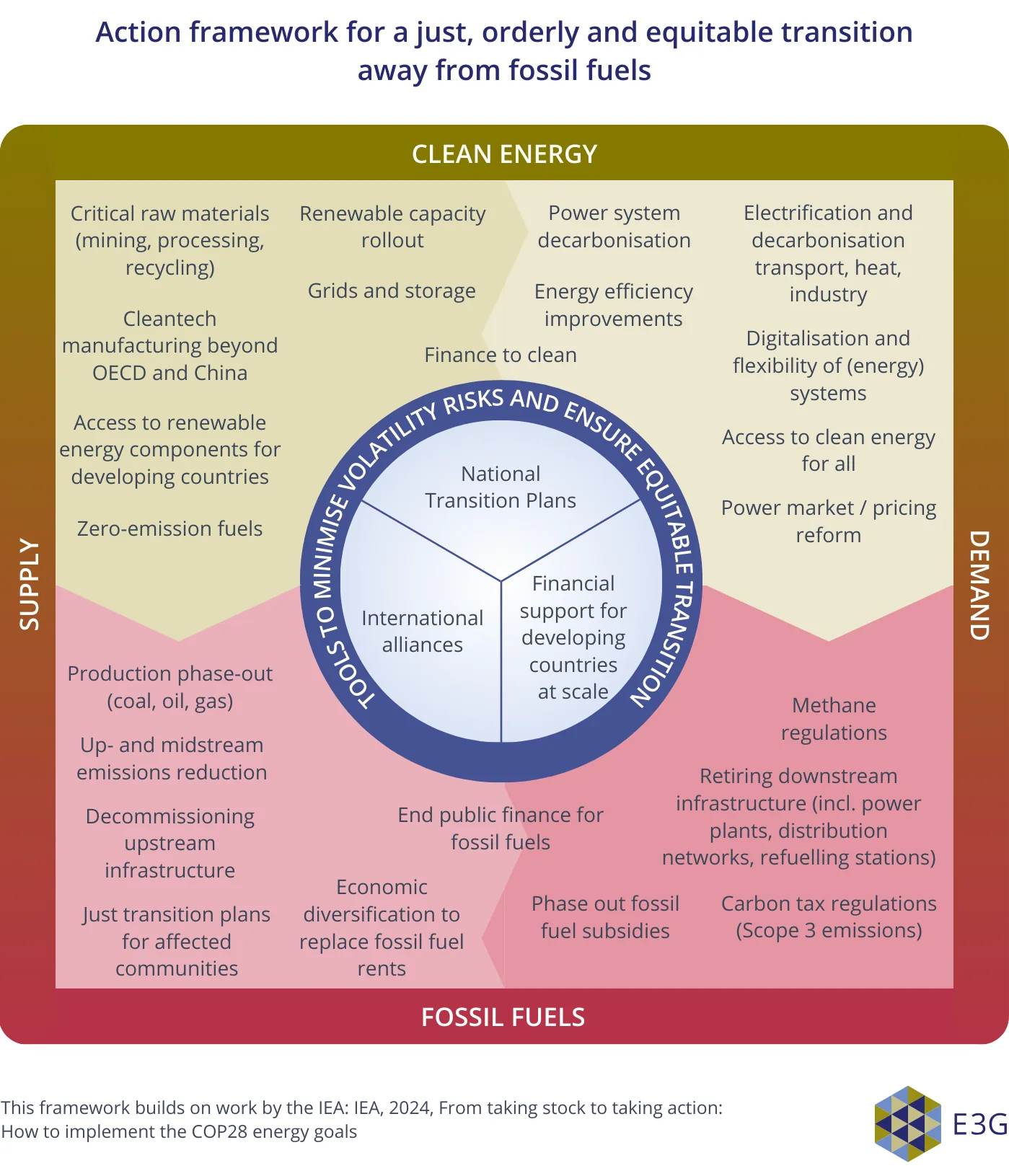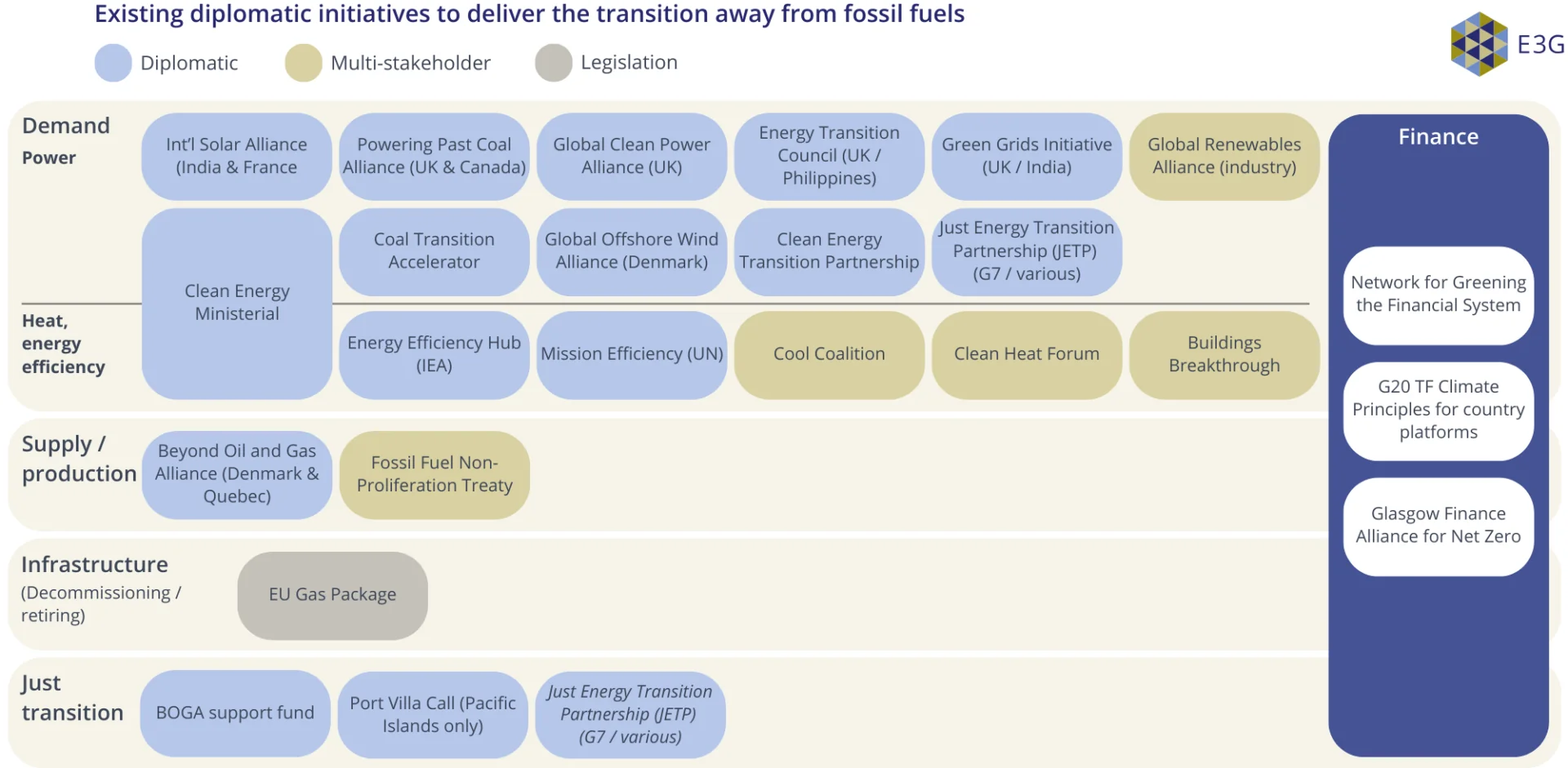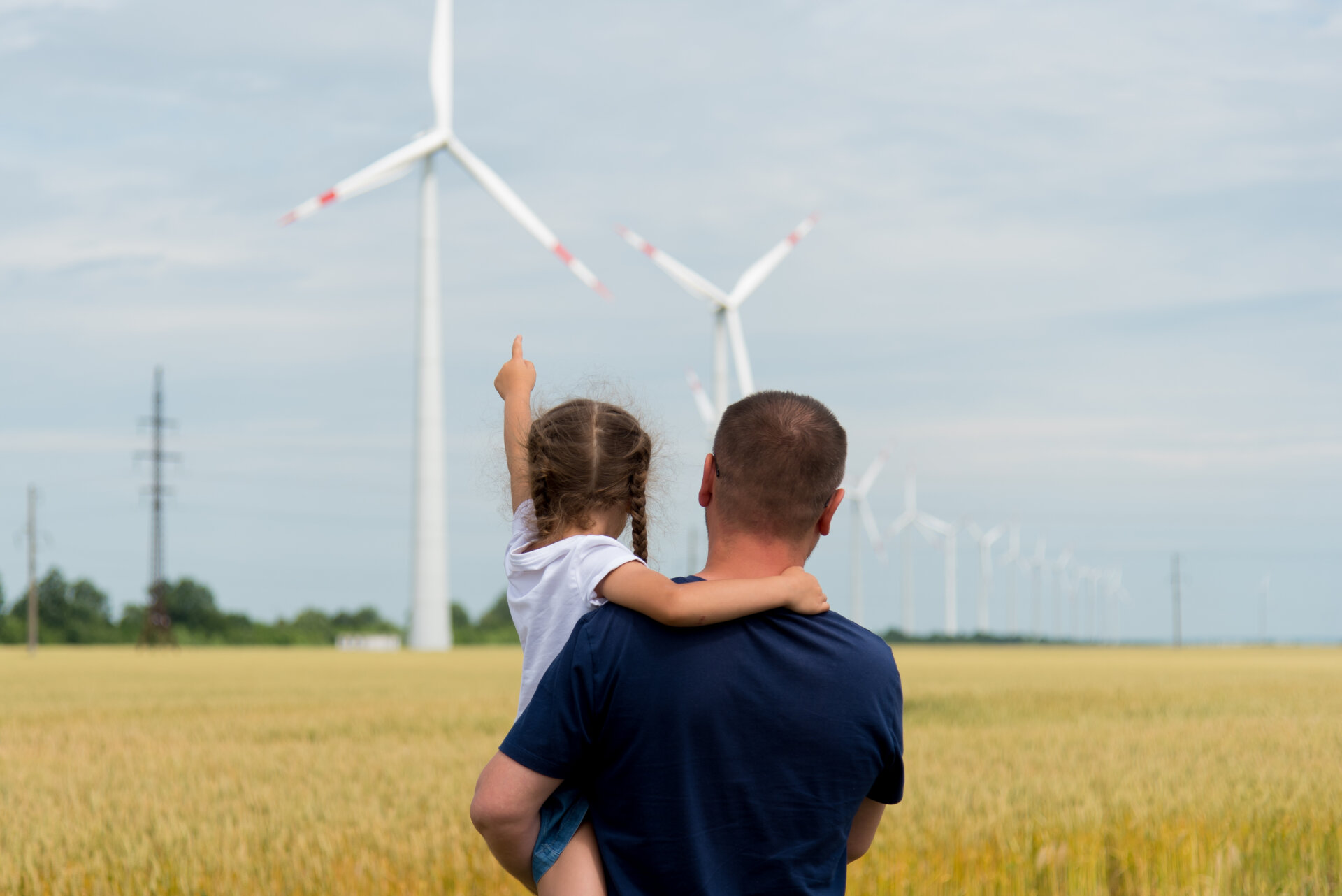At COP28, almost 200 countries agreed to transition away from fossil fuels in the energy system in a “just, orderly and equitable manner”. This shift will have profound impacts on global trade, finance and geopolitics. Unless countries act now to prepare for the structural changes that will accompany the historic drop in oil, coal and gas, more extreme shocks and instability lie ahead.
Achieving net zero carbon emissions by 2050 will require reducing fossil fuels from 80% to just 16% of the global energy mix, according to the IEA’s Net Zero Scenario. This means a radical phase-down of coal, gas and oil use and production over the next two and a half decades.
This transition is already underway, marked by record growth in renewable capacity and electrification of heat and transport sectors. It brings extraordinary new opportunities. However, the uneven distribution of benefits across geographies highlights the need for careful planning to avoid extreme economic and political volatilities.
A framework for the transition: a whole-systems approach is required
Aside from hitting climate targets, it is in countries’ interests to take a planned, whole-system approach if the transition is to be delivered in the just, orderly and equitable manner envisaged at COP28. Such an approach needs to start with managing the entire fossil fuel value chain – thinking beyond just reducing fossil fuel consumption – and must include:
- Action to cut fossil fuel supply as well as demand.
- Quickly and purposefully decommissioning and repurposing fossil fuel infrastructure.
- Managing the impacts of the transition on countries highly dependent on fossil fuel rents. As well as for countries for whom fossil fuels are currently a development pathway.
- Supporting a just and fast transition for regions and communities dependent on fossil fuel industries.

Careful planning and international governance are the best tools for the job
To maintain momentum and address the challenges outlined above, developed countries must demonstrate leadership at COP29 in Baku and on the road to COP30 in Belém, by taking the following steps:
- Develop ambitious national transition plans.
- Strengthen coordination and coherence across the existing fragmented diplomatic efforts.
- Show developing countries that financial and technical support will be provided at scale.

Read the full briefing here.



